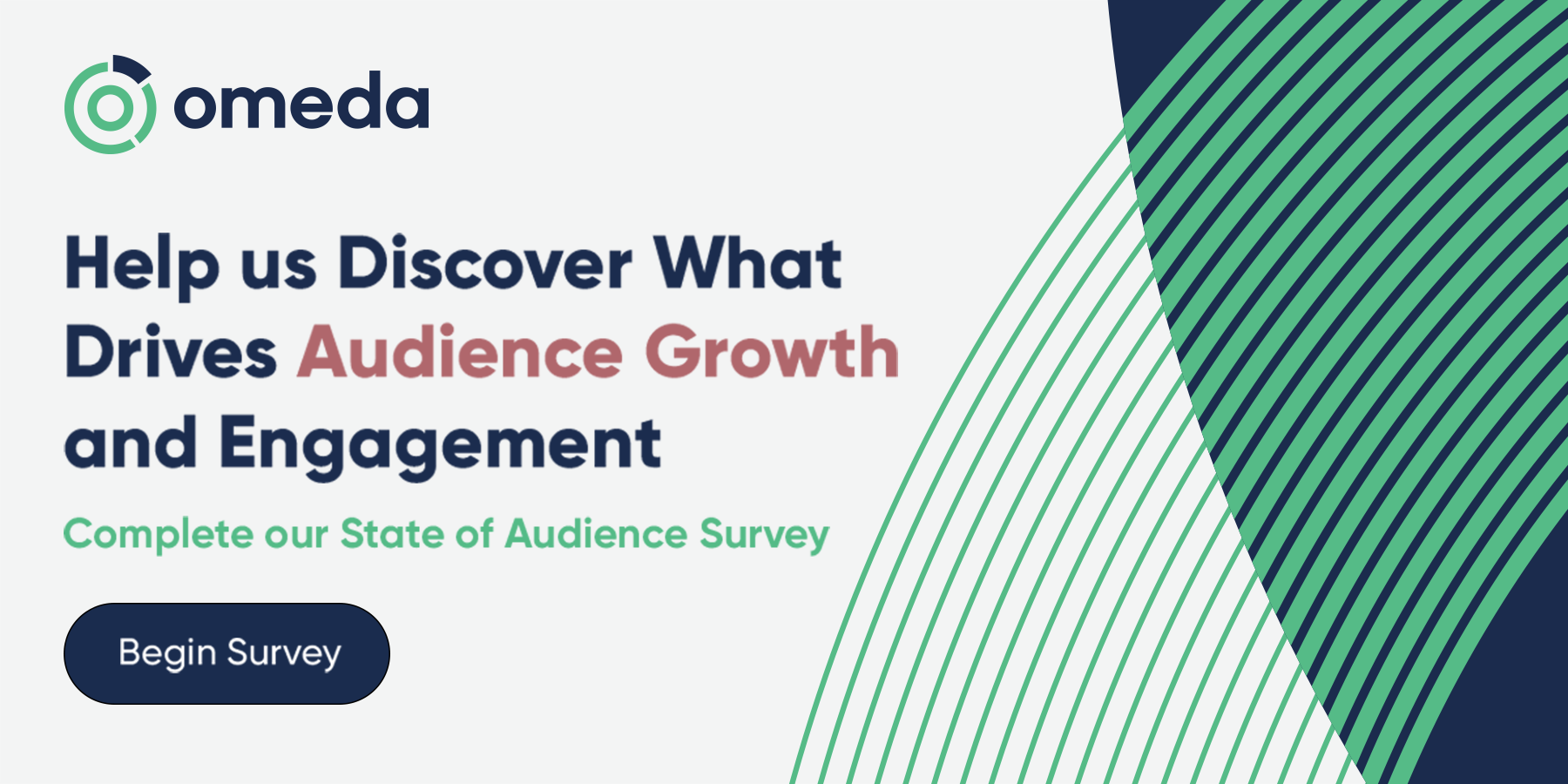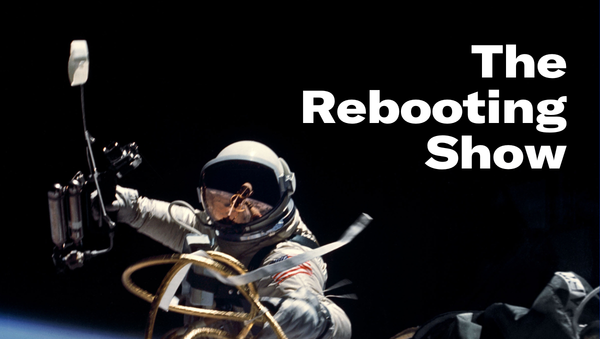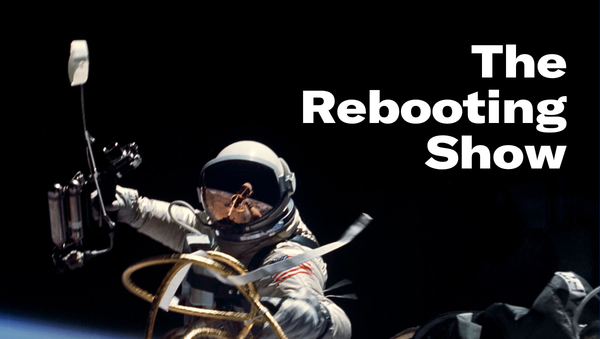Replacing the open web
Plus (for members): In praise of Monocle

Thanks to everyone who joined The Rebooting’s membership program. Sign up for access to all of The Rebooting’s content, regular community events like live podcasts and expert workshops.
I had a scheduling snafu, so no podcast this week. In today’s issue:
- Replacing the open web
- For members: In praise of Monocle

Help us help you drive audience growth

It’s no secret that media businesses are facing disruptions from all sides. So you can’t rely on the same time-worn strategies to grow your audience anymore.
That's why we're creating an industry-first State of Audience Report, which will study how media and audience professionals like you are growing and managing their audience.
But we need your help to do it.
If you work in audience development at your media company, please take 10 minutes to fill out this anonymous survey. We’ll donate $50 to the Chicago Food Bank for every completion — plus, you’ll receive the full research report this spring.
From distraction to addiction
OpenAI’s demo of Sora, its video-creation engine that turns text prompts into realistic videos, is another indication that the horse has not only left the barn but has galloped down the road. It’s clunky, sure, but it also shows that, as I said on last week’s People vs Algorithms podcast, text goes first.
The open internet as it was known is withering. A new version will emerge, but the uneasy contract between the various constituencies is breaking down. The institutions of the open web are crumbling. The third-party cookie’s exit makes the withdrawal from Afghanistan and Vietnam look orderly. Robots.txt, a fundamental plank in the Open Web World Order, is obsolete in a world dominated by data-hungry large language models that don’t send traffic back in return. Section 230 isn’t long for this world. The DCMA in the age of AI is a mismatch. And above all, the backbone of the open web – search – is undergoing a fundamental shift.
Many publishers were caught with their pants around their ankles when search traffic evaporates. Anyone who has used Perplexity and Arc would advise to prepare for search traffic zero. Better to be prepared this time around.
“I came to believe that the path forward in any period of giant transformation is always asking questions, and being skeptical of the answers, and really not believing in any silver bullets,” New York Times publisher Arthur Sulzberger said of navigating change the last time around.
Some of those questions:
- What’s the growth path?
- How can you make more revenue and profits with less traffic?
- What’s the future role of media brand as intermediary between customers and transactions?
- Does your brand have a reason to exist in this future world?
I’m interested in asking those questions later today with Neil Vogel, CEO of Dotdash Meredith. Neil knows what he’s doing. He took the artist formerly known as About.com (even The Mining Company for the old school) and turned it a leading digital publisher that swallowed Meredith. Dotdash bucked several trends in the fourth quarter. Its “core brands” saw traffic grow. That’s good, because if you look at DDM’s results, its revenue is strongly correlated to its total sessions.
“Google dominates search so what it does with the search results is going to be the single thing that affects American consumer businesses more than anything else going,” Neil said last June. “Because that is what’s going to happen. If AI disrupts that process in some way, our business is going to change.”
More to come on Thursday’s episode of People vs Algorithms. (Subscribe wherever you get your podcasts.)
From a larger perspective, much of AI leaves me ambivalent. Sure, it’s very powerful, very interesting, gobs of money will be made, power centers will shift. I’m not sure swimming in a tsunami of crap of synthetic images and being unable to trust anything is real will improve our discourse. I don’t know if the prospect of every person creating personalized movies to watch on their computer goggles seem worth all the compute. I’m left wondering if we could get the cures for cancer without that part.
A generation ago, with social media, many of us saw mostly upsides to connecting the world. Now, with AI, the downsides are obvious to anyone paying attention.
An AI-fueled information space is the apotheosis of the platform era: centralized empires and infinite fragmentation simultaneously. Is there a room for CNN is this world? And while news gets outsize attention for all the obvious reasons, the entertainment industry is next in line.
“Hollywood, after years of trying to fight it, is finally feeling the downward pull of the internet and anyone who knows what the pre-internet world felt like is beginning to get real nervous while they watch the last big ship sink,” Ryan Broderick writes in Garbage Day.
Honest Broker's Ted DiGoia has a must-read essay on the topic, stitching together the cultural impact of media moving from a distraction to an opiate, sedating us in personalized bubbles. Maybe Minority Report’s prescience was in seeing our lives as precogs.
“The fastest growing sector of the culture economy is distraction,” DiGioia writes. “Or call it scrolling or swiping or wasting time or whatever you want. But it’s not art or entertainment, just ceaseless activity. The key is that each stimulus only lasts a few seconds, and must be repeated.”
Sounds super. Of course, the opportunity this time around is to offer an alternative. Perhaps we won’t miss shared experiences. Or maybe, as I hope, we’ll have some kind of embrace of an alternative mode of media that’s less synthetic and more human Just as smoking became uncool, my bet is kicking algorithmic addiction will become an act of rebellion. Not having TikTok as the new punk rock.
In praise of Monocle
“I’ve seen you tweet occasionally about Monocle. I’d be interested in your analysis. TB can trigger eye-rolls, but I’ve long been impressed with the operation and have been happy to pay for magazines and books over the years. Their focus on highly branded events (with “delegates,” not measly “attendees”) seems to strike a cord with things you’ve written.” – Stephen
I’m glad Stephen asked. I’ve long been fascinated, and admittedly amused by Monocle, a self-consciously hip foreign affairs meets urbanism magazine begun in 2007 by TB, aka Tyler Brûlé, the founder of Wallpaper and exemplar of the Monocle jet-setting lifestyle.




